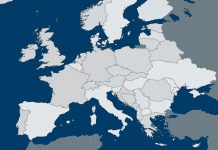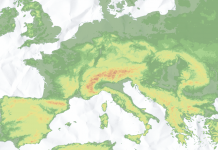Prince Charles has announced that the U.N. Climate Change Conference in Glasgow will be “the last chance saloon” for the planet. The COP26, as it is known, will not produce any breakthroughs that will lead to any immediate solutions, even if the leaders of the world effusively agree with him. If he’s right, we are all dead meat. So at the very least, we need to consider the origins of the responses to his despair.
One explanation is that these leaders don’t actually believe in the dangers of climate change but are publicly demonstrating that they do to pander to those who fear the apocalypse. That they have children and grandchildren (not to mention political offices they want to hold onto) makes their posturing seem reasonable. If they didn’t posture, they may actually have to do something.
A second explanation is the global economic chaos created by the COVID-19 pandemic. Many nations in the Northern Hemisphere are suffering from labor shortages, high energy demand, gridlocked transportation networks and so forth. Indeed, the global economy is reeling in ways not seen outside of war. Given that we are in uncharted waters economically, assuming the worst is not an unreasonable approach. Unleashing a suite of climate change reforms globally this year would be a massive risk not only to the global economy but to the very officeholders who made them. For example, the pledge on cutting coal use would wreak havoc on China. At a time when the Chinese economy is trying to regain its balance, a coal shortage is the last thing it needs. Fighting climate change requires the reconstruction of the global economy and our lives.
Another reason might have to do with a social reality. Climate change is a scientific theory, and the truth is that many people don’t trust scientists. This kind of distrust isn’t new, but it has intensified in the wake of the pandemic – the solutions to which had untold social, political and economic consequences. They ignored the fact that large numbers of people all over the world had refused to be vaccinated in the past, whatever their reasons may have been. The attempt to force vaccinations will likely fail and certainly will not enhance medical counsel. No doubt the reasoning behind vaccines is scientifically sound, but the world is far more complex than it may appear to a scientist, and risks unthinkable to physicians are reasonable in the minds of others.
Similarly, the scientific evidence for climate change is real, but it’s not clear to me that the planet will be destroyed by it. Anyone – especially a politician or head of state – who claims to know with certainty that it will has something to prove. And to say it will be universally catastrophic, as the prince did, ignores the available data that shows it will vary from region to region.
Finally, there is a cynicism on the part of the public about apocalyptic claims. For years, I have heard horror stories about population explosions and global starvation told by demographers who failed to consider that the birthrates of what we now call Baby Boomers were an anomaly, and that once it ran its course the population might start declining. I also recall that the advent of nuclear weapons would eventuate only in self-annihilation. It turns out that politicians understood that being killed was bad, so they avoided it.
It’s possible that Prince Charles is right, and that the politicians kicking the can down the road are killing us. If so, I doubt that a delay means the annihilation of the planet. Whatever the outcome, it is going to be more complicated than that. Me – I don’t trust anything that everyone knows, and climate change has become one of those things.
No one would have expected that COVID-19 measures would lead to something resembling economic gridlock. The connections of everything human are stunningly complex. Surely the seriously committed researchers at the National Institutes of Health couldn’t have imagined what has happened. The world is far more complex than is dreamt of by any of us, and all I know is that what you expect is probably not going to happen, and what does happen will be mightily weird.






 Special Collection – The Middle East
Special Collection – The Middle East